Broke schools across NSW need urgent funding just to make ends meet
Desperate schools across NSW are being forced to cut programs and beg charities for money just to pay for the basics. Search the list to see if your child’s school is on it.

Education
Don't miss out on the headlines from Education. Followed categories will be added to My News.
- Aussie schools have dropped in rankings in the world
- Why private school students are better protected
Exclusive: Schools across the country are in the grip of a financial crisis and facing having to cut student programs with 2020 marked up as one of the worst years on record.
Fires, floods, drought and the COVID-19 pandemic have depleted the coffers of some of our poorest schools and even impacted some of the wealthiest ones.
Schools in every state and territory are increasingly having to beg charities and corporates just to pay for the basics.
The COVID-19 pandemic has exposed public schools’ reliance on parents dipping into their own pockets and without those contributions many schools are facing financial black holes which some say will take up to five years to recover from.
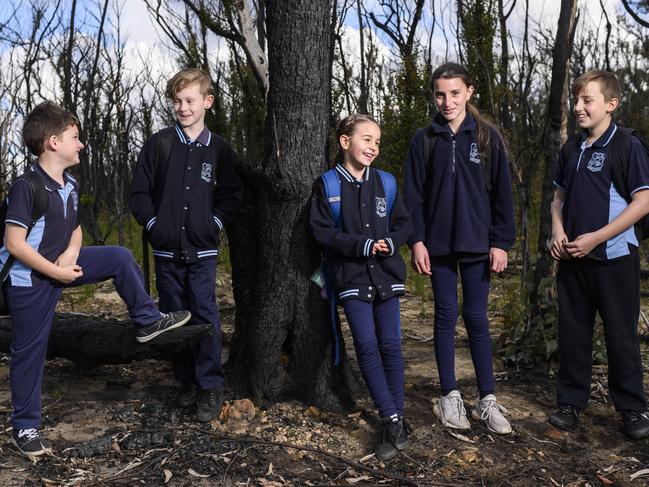
Some are reporting students will miss out as “extras” such as devices, sporting programs, excursions, and courses for students who need extra support, while others are warning end-of-year-celebrations such as graduation events will be impacted.
A survey by Australian charity Schools Plus – which helps connect donors with schools in need to improve student outcomes – found more than a third of schools had been impacted financially this year.
Almost 50 per cent of respondents said the COVID-19 pandemic had affected students’ learning, while almost a quarter said they needed more help to support the mental and physical wellbeing of students and teachers.
With so many families affected financially by the pandemic, some states put a ban on schools asking for the fees earlier this year but that is now being lifted.
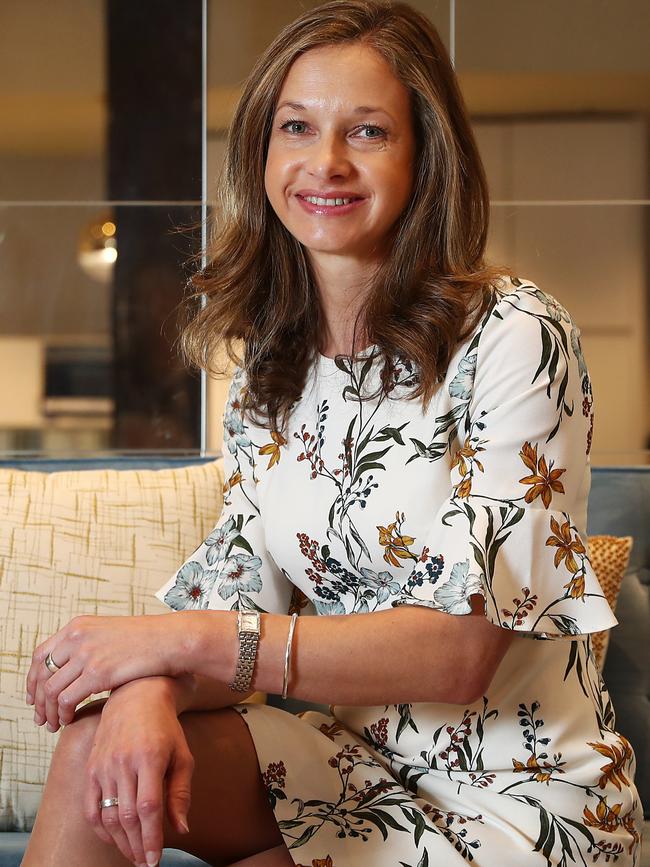
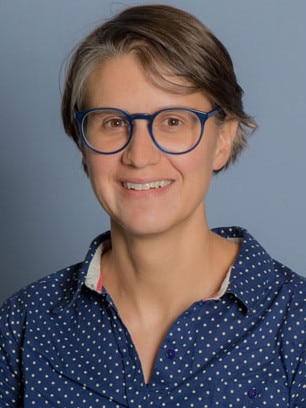
Parents are now being asked again for their voluntary school fees although in Tasmania the practice has been banned and the government is reimbursing schools.
In NSW schools are warning parents they will again be asking for the “school fees” in term 3, although the NSW department of education confirmed principals were advised to suspend reminders and requests for voluntary contributions and subject fees.
Deakin University Senior Lecturer in Education Emma Rowe said most school are too-heavily reliant on parent contributions.
She said in some cases, schools in more affluent areas were receiving four times the amount of parents contributions compared to those in less-affluent suburbs.
“When you set up that reliance you are going to see a situation like this where the gap will increasingly widen,” Dr Rowe said.
“Schools will see an impact on their income this year without doubt especially the lower socio-economic schools but I’d say it is across all of the quartiles,” she said.
Schools Plus CEO Rosemary Conn believes demand for financial help will skyrocket, prompting the organisation to launch a new crisis appeal to raise funds for schools.
“The disadvantage caused by remoteness is being exacerbated by the bushfires but now when you think about where jobs are essentially likely to be lost as well it will start to impact in metro areas because of COVID,” Ms Conn told News Corp Australia.
News Corp spoke to one school principal who said without a charity turning up earlier in the year with backpacks filled with stationary, neither the school nor parents would be able to afford to cover the costs.
Another said they were going ‘cap in hand’ to local businesses asking for help to fund programs previously covered by fundraising.
The United Nations International Children’s Fund (UNICEF) Australia has also been inundated with requests from desperate Australian schools asking for grants.
“Demand has well exceeded our initial expectations, demonstrating that there is an ongoing need for supporting students in the schools that have been hardest hit by multiple crises,” Australian Programs Director Nicole Breeze said.
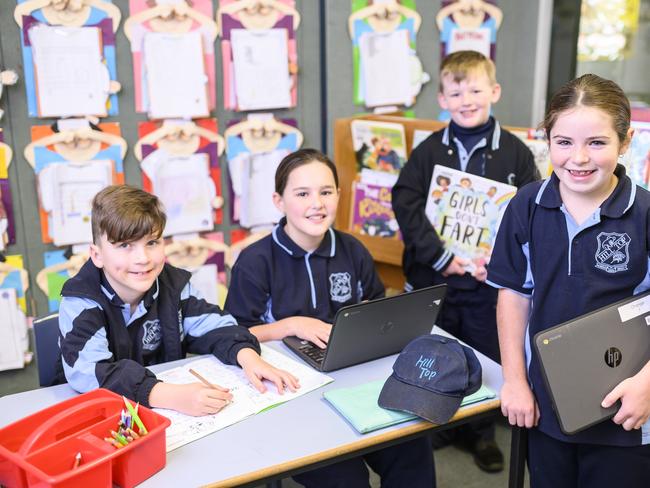
President of the P & C Federation Tim Spencer said he expected the financial fall out to last several years.
“Probably five years minimum, some of these schools have substantial issues in their communities,” Mr Spencer said.
He said money was unevenly spread across schools, with some having pots of money to lean on but others stretched too thin.
“There’s obviously a bucket of money from state and federal level that needs to be spread across all of those schools, is it done in the best and most efficient way? Probably not. There is a lot of wastage in the system.”
Australian Council of State Schools Organisations chair Andrew Bidwell agreed, saying it was times like this it becomes clear a “simple, transparent and fair funding model” is needed.
“And because it’s not in that state, schools then really need to rely on parents, families and the community to subsidise where that’s required.”
They are only halfway through the school year but Hill Top Public School is already winded by the events of 2020.
A small school sandwiched between Mittagong and Thirlmere in the NSW Southern Highlands, this is a community that is stretched at the best of times. But in the wake of the fires, drought and now the financial fallout from COVID-19, Hill Top is one of thousands of schools across the country who are going to need a handout before their students can move on.
Acting principal Julie Penn said the school has looked to charities for additional support.
“What this school needs more than anything is security,” Ms Penn told The Daily Telegraph.
“We need funding for the wellbeing programs our students need, we need funding for external programs like gymnastics, or just not having to blink about wanting to take the children on an excursion.
“We would like to invest more in playground equipment.”
PUBLIC SCHOOLS IN WEALTHY AREAS HIRE OUT FACILITIES
Schools in real estate “rich spots” are raking in hundreds of thousands of extra dollars a year by renting out facilities and playgrounds for weekend markets and other events.
On Sydney’s north shore, Lane Cove West Public School pocketed an extra $435,000 last year from rent while Killara Public School rakes in $376,000 and Mowbray Public in Lane Cove made $217,000.
It is a similar story on the northern beaches, where Mona Vale Public earned $178,000, while hosting weekend markets in the swanky eastern suburbs earned Bondi Beach Public $325,000 and Glebe Public $304,000.
But the Parents and Citizens Federation described the system as inequitable for schools in poorer areas.
“There’s obviously enormous variation in how much schools earn from things like parental contributions or licensed canteens or renting out facilities,” a spokesman said.
“Some schools can make tens of thousands of dollars, while others may make a few hundred dollars at most. To deliver education, you need an equitable level of funding for all schools so that all students have the opportunity to meet their full potential.”
However, Primary Principals Association president Phil Seymour said schools in wealthy areas should be free to leverage their location and infrastructure to make extra cash because they did not receive special funding dispensations from the government for having needy students.
“The difference is some of those schools would not get equity funding for low SES students, so they would try to get some extra money,” he said. “They are being resourceful because they have the clientele around them who will go into the markets.”
Centre for Independent Studies education researcher Glenn Fahey opposed any kind of redistribution of fees, saying the system rewarded entrepreneurial parents who got the most value out of their school’s infrastructure.
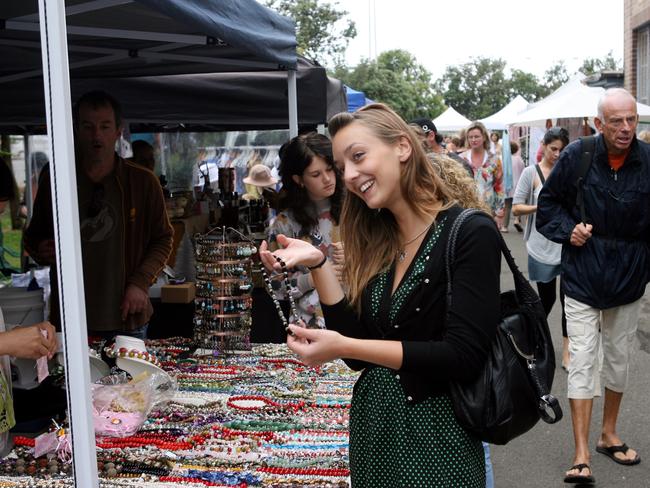
“It should be encouraged that schools take all available approaches to try to use their facilities, because at the end of the day they are sitting on quite expensive real estate,” he said.
Tanya Teale, whose son and daughter attend Windsor South Public School, which earned just $3304 in rent money, said inner city schools had an unfair advantage.
“Schools like South Windsor have to find other ways to fund school improvements,” she said.
Schools in Sydney’s west, however, earned more than others for leasing their canteens to external providers. Westfield Sports High School received $124,000, and Cecil Hills High School earned $104,000 in canteen rent.
- by CHRISTOPHER HARRIS
